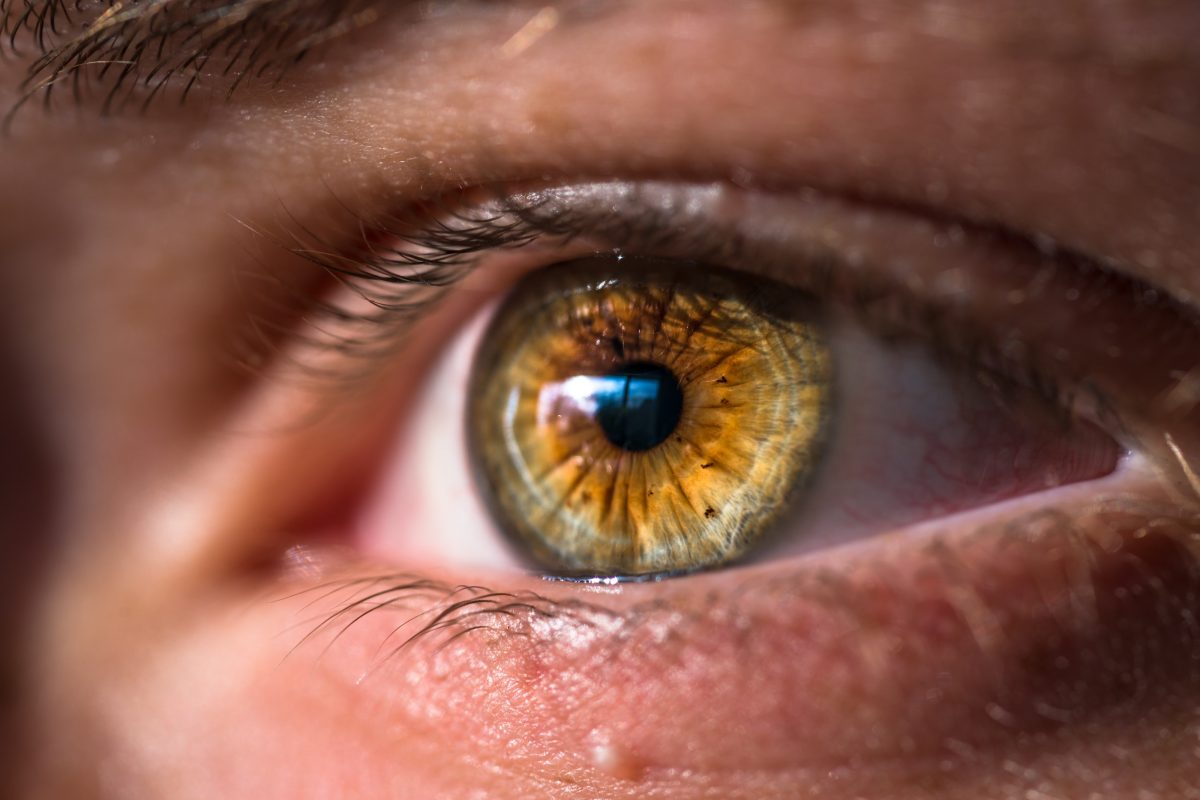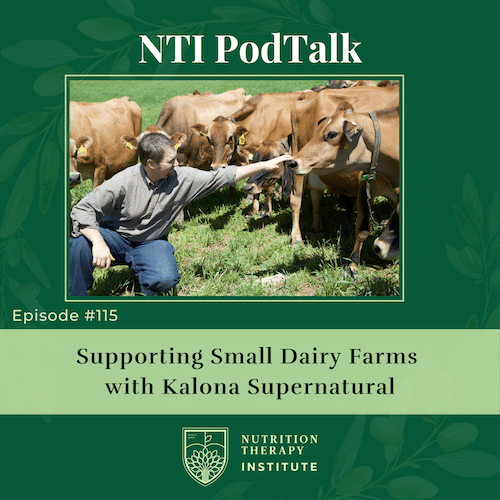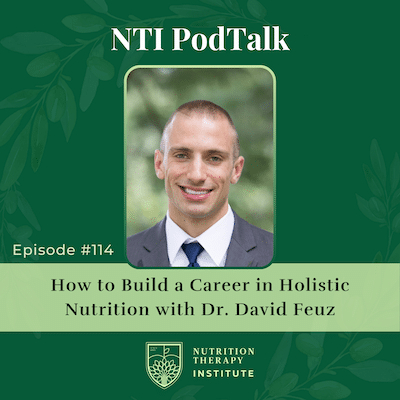
Share this post!
Junk food can cause blindness.
Nutrition therapists will tell you that eye health is influenced by the foods you eat, but most people think little about it. That changed when the story of a teenager going blind from junk food hit news channels on September 3rd.
In a report published in the Annals of Internal Medicine on September 2, 2019, doctors described the case of a boy in the United Kingdom who ate only French fries, Pringles potato chips, white bread, ham, and sausage for many years. The boy had come to the doctor for fatigue and had been given vitamin B12 for anemia. A year later, the boy began to develop hearing and vision problems, but no cause was found. By the age of 17, the boy’s vision had deteriorated to the point of blindness.
Doctors determined that the boy had nutritional optic neuropathy—damage to the optic nerve caused by nutritional deficiencies. They detected not only low vitamin B12 but also low copper and selenium levels, a high zinc level, and low vitamin D.
Sadly, what could have been prevented was not. By the time the nutritional inadequacies were detected, the damage to the boy’s optic nerve had already become permanent.
What is Nutritional Optic Neuropathy?
The optic nerve (also called cranial nerve II) is located in the back of the eye. It transmits signals from the retina to the vision centers of the brain. Although the optic nerve is connected to the eye, it is actually considered part of the central nervous system.
The most common condition to damage the optic nerve is glaucoma. In glaucoma, the optic nerve becomes damaged over time by increased pressure in the eyes. Another condition that leads to optic nerve damage is multiple sclerosis (MS). In MS, the protective myelin sheath around the optic nerve becomes inflamed and damaged.
Nutritional optic neuropathy is uncommon—particularly in developed countries where malnutrition is rare. People who are at the highest risk of nutritional optic neuropathy are those who chronically abuse alcohol, who incorrectly follow a vegetarian or vegan diet, or who have had weight-loss surgery.
Nutritional optic neuropathy affects both eyes simultaneously. It is painless, gradually progressive, and marked by symmetrical vision loss. It can also be accompanied by changes in color vision.
Nutrition Therapy for Eyes and Vision
The lead author of the case report of the teenager going blind from junk food stated that the situation “highlighted the impact of diet on visual and physical health, and the fact that calorie intake and BMI are not reliable indicators of nutritional status.”
An important thing to be aware of in this case was that the teenager was a healthy weight and was taking no medications for any medical conditions. He was considered to be otherwise “healthy” when his vision problems became apparent.
The situation serves as an excellent example of a need for more proactive screening and detection of nutritional inadequacies. The abnormal levels of zinc, selenium, and vitamin D that were detected in this case are not markers that are routinely screened in teenagers during annual physicals.
Whereas primary care physicians can routinely ask about diet and consider the impacts of nutrition on health, they are not extensively trained in nutrition. Nutrition therapists are uniquely positioned to fill this need.
Nutrition therapists thoroughly evaluate the diet, examine a person for any outward or physical signs of nutritional problems, and order nutritional tests when appropriate. Nutrition assessments and therapies can catch minor insufficiencies early and potentially prevent long-term risks to the eyes, vision, and overall health.
Detecting Nutrient Deficiencies for Eyes and Vision
Some of the nutrient deficiencies that are known to lead to optic nerve damage include vitamin B1 (thiamine), vitamin B2 (riboflavin), vitamin B3 (niacin), vitamin B6 (pyridoxine), vitamin B9 (folate), vitamin B12 (cobalamin), iron, calcium, magnesium, and copper.
Screening for deficiencies of these nutrients is not routine, so they can be easily overlooked. An astute doctor or nutrition therapist, however, can rely on physical clues and lab tests to detect insufficiencies in these nutrients before it’s too late.
For example, routine blood tests for anemia can indicate when there may be deficiencies in iron or vitamin B12. Painful cracking at the corners of the mouth could indicate B vitamin deficiencies. Muscle cramps, elevated blood pressure, or anxiety could suggest a magnesium deficiency.
Although screening for deficiencies of vitamins and minerals is not routine at most doctor visits, there are ways to recognize nutritional problems. Nutrition therapists always review a person’s dietary habits in detail. Many even use software that evaluates the nutrients in a client’s typical diet. These tools could prove invaluable for the early detection of nutritional problems.
5 Top Nutrients for Eyes and Vision
As mentioned above, the nutrient deficiencies associated with nutritional optic neuropathy include B complex vitamins, vitamin B12, iron, calcium, magnesium, and copper. Also, vitamin A deficiency is the most common cause of blindness worldwide. Some nutrients that are known to play a role in eye health are neither vitamins nor minerals. Nutrients like essential fatty acids and carotenoids are also critical for eye health. To support healthy eyes and vision, consider these top 5 nutrients:
- Antioxidant Vitamins (A, C, E). Vitamin A maintains the eye’s photoreceptors. Lack of vitamin A contributes to night blindness and dry eyes. Vitamin C is concentrated in the aqueous humor of the eyes, where it plays an important antioxidant role. Vitamin E is a fat-soluble antioxidant that is known to protect the health of cell membranes. Oxidative stress contributes to many different eye diseases, so boosting intake of vitamins A, C, E, and other antioxidants is an important step toward supporting healthy vision over time.
- B Vitamins. The case study of the teenager who developed blindness from junk food detected a vitamin B12 deficiency as part of the cause. B vitamins are essential for the health of the nerves, including the optic nerve. In children, B vitamins have been associated with visual acuity. In adults, a study of more than 5000 women who were followed for an average of 7 years found that supplementation with B vitamins reduced the risk of age-related macular degeneration.
- Carotenoids (Lutein and Zeaxanthin) are plant nutrients that are found in many colorful and green leafy vegetables. Lutein and zeaxanthin are two carotenoids that are concentrated in the macula, which is the central part of the retina of the eye. People with a higher intake of carotenoids have been found to have a lower risk of developing macular degeneration.
- Essential Fatty Acids (Docosahexaenoic acid /DHA) are major structural components of the retina and nerves. DHA is known to contribute to the maturation and development of the brain and vision in children, and its deficiency can impair vision in children. There is also good evidence that not only DHA but also other essential fatty acids are important for protection against a range of eye conditions.
- Zinc is an antioxidant mineral whose highest concentration in the body is found in the eye. Zinc is particularly concentrated in the visual pigments of the retina. A Cochrane review concluded from five studies that zinc supplementation might slow the progression of macular degeneration.
Eating for Eye and Vision Health
The story of the teenager who developed blindness after years of eating junk food highlights the critical importance of diet for eye health. As you can see from the list of nutrients above, the best way to provide all of the nutrition that eyes need is to eat a nutrient-dense and varied diet.
Fruits and vegetables provide a wide array of antioxidants, carotenoids, and other nutritious plant compounds. Eggs, butter, and other animal foods provide vitamin A, vitamin B12, and essential minerals. Seeds, nuts, and oils provide essential fatty acids. Whole grains provide magnesium and other minerals.
Nutrition therapists have an important role to play in the early recognition of nutritional inadequacies. If you have any concern about how the quality of your diet (or the diet of your children) might affect long-term health, seek out care from a qualified nutrition therapist.
The Nutrition Therapy Institute keeps a directory of graduates here.
_________________________________________________________________________________________________________________
About the Author
Sarah Cook, ND, is an instructor at the Nutrition Therapy Institute. She is also the owner of ND Pen, providing branding, copywriting, and website design services for integrative healthcare practitioners. Connect with Sarah at www.ndpen.com.
About Nutrition Therapy Institute’s Holistic Nutrition Certification
Nutrition Therapy Institute (NTI) is a leader in holistic nutrition education. Since 1999, NTI has provided students with the highest quality in nutrition training by offering comprehensive holistic nutrition courses online and in-person to help students achieve thriving careers as holistic nutrition therapists in the field of holistic nutrition counseling and wellness. Interested in starting our holistic nutrition courses and earning your holistic nutrition certification? Attend an informational webinar to learn more by signing up HERE.
Image: Image by Joel Staveley is free for use by Unsplash
Share this post!


















